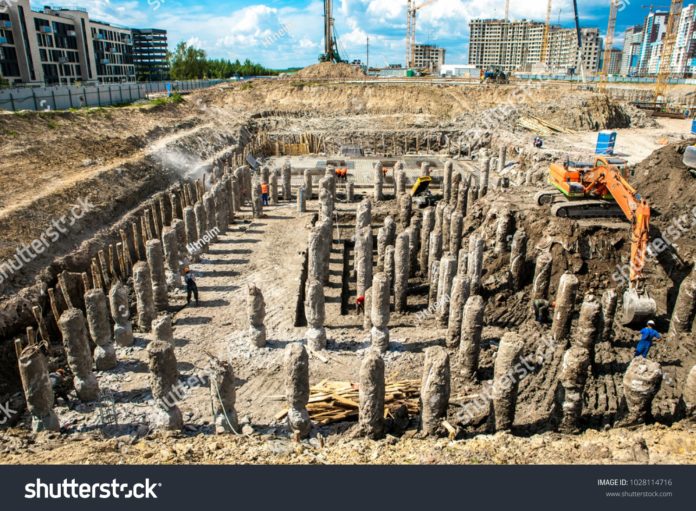The engineering industry spans a wide range of careers and interests, some of which are self-explanatory and well-known careers, such as mechanical engineering. Others, however, are relatively unfamiliar to the general public, and one of these lesser-known careers is that of geotechnical engineering. If you’re unsure about what geotechnical engineering is all about, then this is the right article for you! Read on to find out exactly what geotechnical engineering is and how you could have a career in this field.
What Exactly is Geotechnical Engineering?
One of the biggest hints to finding out what geotechnical engineering is lies within its name. ‘Geo’ means anything to do with the earth, so geotechnical engineering is essentially the study of the earth’s rock and soil taken from the perspective of engineering. Whilst the main part of working in geotechnics involves investigating soil to uncover its deformation properties and strength, there are many different subgenres in a geotechnical engineering career that you could potentially explore. This includes but is not limited to hydrogeology and soil mechanics.
What Do Geotechnical Engineers Do?
One of the main duties of a geotechnical engineer is to examine the earth and its slopes to determine their stability and ultimately assess the risk of landslides and avalanches. However, the expertise of a geotechnical engineer may be enlisted to help out with construction projects, as they can accurately examine whether the earth that the construction is to be built upon is safe and discover the impact that the earth may have on this project. For example, a geotechnical engineer may discover that a plot of land is susceptible to landslides and, therefore, that construction upon such land would be deemed unsafe.
How Can I Get Involved?
Now that you know a little about what geotechnical engineering involves, you should also be aware that it is not an easy career have as it is a profession that requires you to have immense knowledge about a specialist subject. If you’ve never done anything like this, you may be wondering how you can possibly get involved in such a unique and specialized branch of engineering. Well, everyone has to start somewhere, and that also applies to this field, so read on to find out how you can get started in the world of geotechnical engineering.
Get a Degree
This is probably the most direct method in which you can get involved in geotechnical engineering as you are taught everything you need to know to be successful in this field through an intensive course of study. However, before you make plans to specialize in geotechnical engineering, it’s important that you research what each individual college requires of you before you apply.
The most common problem that some aspiring geotechnical engineers encounter is that they do not realize that a bachelor’s degree in civil engineering is, more often than not, needed prior to specializing in geotechnical engineering. The reason for this is that geotechnical engineering classes as a branch of civil engineering, and without any prior knowledge, it would be extremely difficult for you to earn the qualification. If you have already achieved a degree in civil engineering but are interested in becoming a specialist in a specific subject, then you can more easily apply for a masters degree in this field.
Get Involved Indirectly
If you’re finding that you would be interested in sometimes working with geotechnical aspects of civil engineering but would also like to work with other areas such as structural engineering, then a really great way of doing this is to get a degree in engineering management. By doing this, you may have the opportunity to oversee geotechnical engineering projects without getting directly involved.
This is a great option if you would like to explore different aspects of the engineering world, and it creates a possible pathway that may lead to you not only overseeing geotechnical engineering projects but also running your own company as a fully-qualified engineering manager. If this idea sounds appealing to you but you don’t have time to fully enroll in college due to other responsibilities that cannot be sacrificed, why not try applying for an online masters in engineering management? With online courses, you can gain qualifications without sacrificing your current career or commitments.
Volunteer
Getting a degree is not a possible option for everyone as college is especially expensive, with very few students actually being able to afford the education they’re currently receiving or aspiring to receive. If you’re finding yourself in this situation, it can be easy to beat yourself down and think that you will never achieve your geotechnical engineering dreams, but that simply isn’t true. Whilst it is not exactly the same as being a qualified geotechnical engineer, you can easily sink your teeth into the world of geology through volunteering.
There are a wide range of volunteering projects that could give you the geology fix you’re looking for, such as volunteering for conservation projects in Costa Rica. Whilst it is not exactly the same as geotechnical engineering, some conservation projects can involve attempting to save and preserve rare and endangered soils and plant life. This is not only a great option for those who can’t afford college but also for those who are interested in geological studies but do not want to go to college or are not entirely interested in the technical and engineering side of the career.
Geotechnical engineering is a branch of civil engineering that often goes not only unnoticed but also unappreciated. Thanks to the work of geotechnical engineers, potentially deadly landslides and avalanches have been avoided, and construction work is able to go ahead without undetected risks caused by the soil on which it has been built. If you’re interested in becoming a geotechnical engineer and want to make a difference to the world through your work, check out both online and physical courses to specialize in this field and get your masters. If the work seems too intense but you are still interested in geographical study, there are plenty of volunteering projects that you can get involved in.











